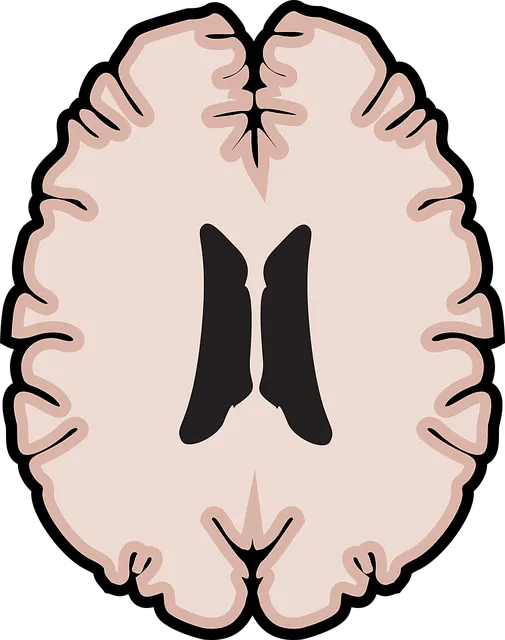Kaiser Permanente's mental health center in Longmont provides immediate crisis support using specialized teams and evidence-based strategies like CBT, emotional regulation tools, and coping skills development. Their holistic approach, highlighted by positive reviews, addresses healthcare provider burnout alongside traditional therapy and tailored programs for anxiety relief. By identifying at-risk individuals through subtle signs of distress and personal risk factors, they offer tailored interventions focusing on resilience and long-term mental health. Post-crisis, they promote ongoing therapy, community support networks, and best practice-inspired strategies to prevent future incidents based on positive Kaiser Permanente mental health center reviews Longmont.
In times of crisis, mental health centers play a pivotal role in providing immediate support and long-term care. This article explores crisis intervention strategies, guided by the expertise of renowned facilities like Kaiser Permanente Longmont. We delve into understanding crisis intervention’s vital function for mental health centers, assess risk factors, and highlight effective interventions. Additionally, we discuss post-crisis follow-up to ensure well-being and prevent recurrence, drawing insights from successful programs, including Kaiser Permanente Longmont’s services as per available mental health center reviews.
- Understanding Crisis Intervention: A Vital Role for Mental Health Centers
- Kaiser Permanente Longmont: A Hub for Emergency Support and Care
- Assessing the Need: Identifying Signs and Risk Factors in At-Risk Individuals
- Strategic Interventions: Effective Techniques to Stabilize and Support Individuals in Crisis
- Post-Crisis Follow-Up: Ensuring Long-Term Wellbeing and Preventing Recurrence
Understanding Crisis Intervention: A Vital Role for Mental Health Centers

Crisis intervention plays a pivotal role in supporting individuals facing severe emotional distress or mental health crises. Mental health centers, such as the Kaiser Permanente Longmont location, are uniquely positioned to provide timely and effective assistance. These facilities often employ specialized teams trained in crisis intervention techniques, ensuring individuals receive immediate support tailored to their needs.
Effective crisis intervention strategies focus on several key areas. Communication strategies help establish a safe space for individuals to express themselves honestly, fostering an environment of trust and understanding. Emotional regulation techniques empower clients to manage intense emotions, while coping skills development equips them with tools to navigate future challenges independently. By integrating these approaches, mental health centers like Kaiser Permanente Longmont contribute significantly to crisis prevention and long-term well-being.
Kaiser Permanente Longmont: A Hub for Emergency Support and Care

Kaiser Permanente Longmont stands as a beacon of hope and resilience in the heart of Colorado, renowned for its comprehensive approach to emergency support and care. This mental health center has earned accolades through countless positive Kaiser Permanente mental health center reviews, reflecting its commitment to addressing diverse psychological needs. Beyond traditional therapy, Longmont offers innovative programs tailored to mitigate burnout among healthcare providers—a pressing issue in the industry. The center’s focus on cultural sensitivity in mental healthcare practice ensures that every patient receives care that respects their unique background and beliefs, fostering a deeper sense of trust and understanding.
By integrating effective burnout prevention strategies for healthcare providers, Kaiser Permanente Longmont not only supports its staff but also enhances overall patient satisfaction. This holistic approach extends to addressing anxiety relief, providing tools and resources that empower individuals to navigate life’s challenges with greater equanimity. Through these initiatives, the center continues to be a leading example of how compassionate care can transform lives and communities.
Assessing the Need: Identifying Signs and Risk Factors in At-Risk Individuals

Identifying individuals at risk is a crucial first step in crisis intervention. Recognizing signs of distress can be challenging, but trained professionals at Kaiser Permanente mental health center reviews Longmont have developed keen insights into these indicators. Behaviors such as sudden changes in mood or appearance, increased isolation, and expressions of despair or hopelessness may signal underlying struggles. Additionally, understanding personal risk factors unique to each individual is vital. For instance, history of trauma, chronic illnesses, substance abuse, or recent life stressors can all elevate vulnerability during times of crisis.
By recognizing these signs and considering an individual’s personal context, including their Self-Esteem Improvement and development of a Self-Care Routine for Better Mental Health, healthcare providers can offer targeted interventions. This proactive approach not only helps individuals navigate their current crisis but also equips them with Burnout Prevention Strategies for Healthcare Providers, fostering resilience and promoting long-term mental well-being.
Strategic Interventions: Effective Techniques to Stabilize and Support Individuals in Crisis

In moments of crisis, strategic interventions play a pivotal role in stabilizing and supporting individuals facing mental health challenges. Kaiser Permanente mental health center reviews in Longmont consistently highlight the effectiveness of techniques such as cognitive behavioral therapy (CBT), which aids in identifying and modifying negative thought patterns. This approach empowers individuals to manage their moods more effectively, fostering resilience against future crises.
Additionally, boosting confidence is a powerful tool during crisis intervention. By focusing on strengths and accomplishments, professionals can help individuals regain a sense of self-worth. Encouraging the development of a structured self-care routine further supports better mental health. Simple practices like regular exercise, mindfulness, and adequate sleep can significantly enhance an individual’s ability to cope with stress and prevent future crises. These evidence-based strategies, often employed by Kaiser Permanente mental health centers in Longmont, offer holistic support tailored to each person’s unique needs.
Post-Crisis Follow-Up: Ensuring Long-Term Wellbeing and Preventing Recurrence

After an initial crisis intervention, ensuring long-term mental health and preventing future incidents is a critical step. This process involves a comprehensive approach tailored to each individual’s needs, as advocated by mental health policy analysts like those at Kaiser Permanente Longmont. One effective strategy is ongoing therapy or counseling, which provides individuals with the tools to manage stress and maintain emotional resilience. These sessions can be particularly beneficial in processing any unresolved trauma and developing coping mechanisms for future challenges.
Additionally, community-based support networks play a vital role in post-crisis follow-up. Encouraging participation in support groups or peer mentoring programs allows individuals to connect with others who have experienced similar crises. Such initiatives foster a sense of belonging and understanding, enhancing recovery. Stress management workshops organized by mental health advocacy groups can also empower individuals to take charge of their well-being, providing practical tools for anxiety relief and overall stress reduction.
In conclusion, crisis intervention strategies play a pivotal role in supporting individuals during their most vulnerable moments. As highlighted by Kaiser Permanente Longmont’s effective emergency care services and mental health center reviews, specialized centers like these are essential hubs for providing immediate assistance and stabilization. By understanding the signs of distress and implementing strategic interventions, we can ensure better outcomes for at-risk individuals. Additionally, post-crisis follow-up is crucial to foster long-term wellbeing and prevent future occurrences, ultimately enriching the tapestry of mental health support.






